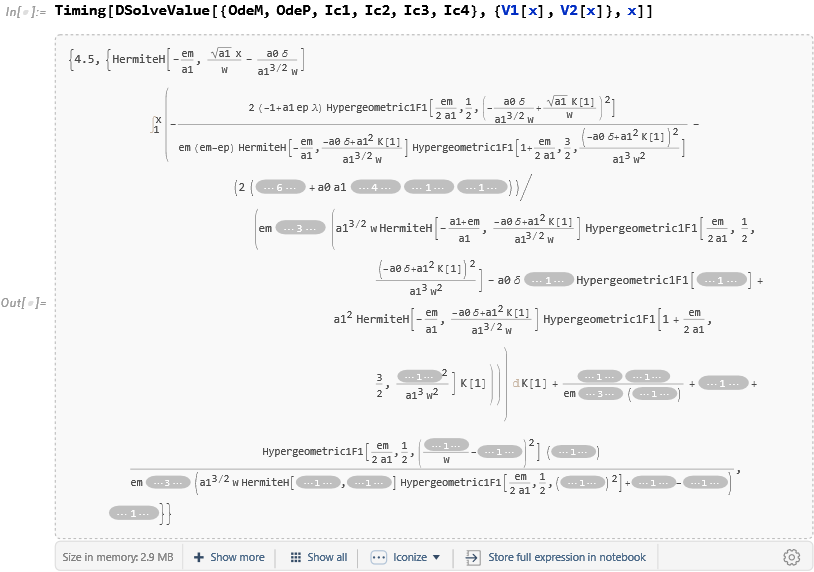Is it normal that Mathematica takes more than 2 hours to solve this system of differential equations?
ODEs:
OdeM = 1/2*\[Sigma]X^2*V1''[x] + ((a0*\[Delta])/a1 - a1*x)*V1'[x] - em*V1[x] == -((2*x - 2*ep*(a0 + a1*x)* \[Lambda])/(em - ep));
OdeP = 1/2*\[Sigma]X^2*V2''[x] + ((a0*\[Delta])/a1 - a1*x)*V2'[x] - ep*V2[x] == -((-2*x + 2*em*(a0 + a1*x)* \[Lambda])/(em - ep));
Initial conditions:
Ic1 = em*V1[xhat] + ep*V2[xhat] == 0;
Ic2 = em*V1'[xhat] + ep*V2'[xhat] == 0;
Ic3 = V1[xhat] + V2[xhat] == (2*\[Theta])/((\[Epsilon] - 1) (1 + \[CurlyPhi]))*xhat;
Ic4 = V1'[xhat] + V2'[xhat] == (2*\[Theta])/((\[Epsilon] - 1) (1 + \[CurlyPhi]));
Solver:
Sol = DSolveValue[{OdeM, OdeP, Ic1, Ic2, Ic3, Ic4}, {V1[x], V2[x]}, x] //FullSimplify
The same system without the four initial conditions takes barely any time. I am afraid I am doing something wrong, even though it seems a pretty standard problem.


